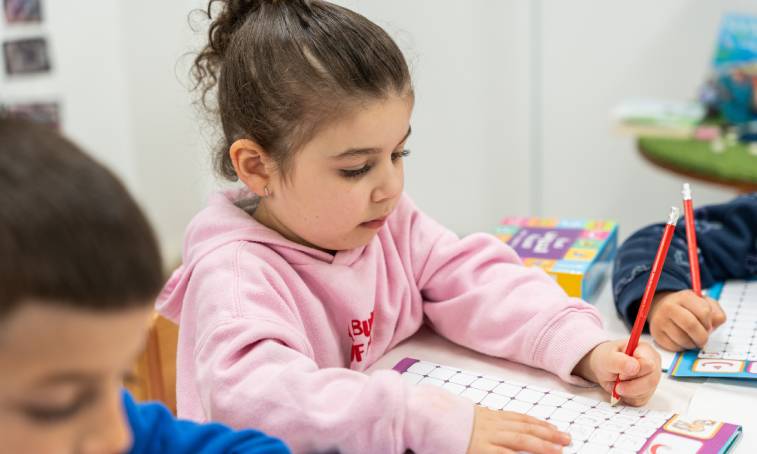Daycare – It’s a heart-tugging choice, mixed with guilt, hopes, and the pressure to make the “right” decision for the future of our kids. For many parents, the question of daycare vs stay at home child development feels overwhelming, because both paths have unique benefits.
Some days, the walls feel like they’re closing in with routines, while other days it’s the drop-off tears tugging hard. Between nap times, screen guilt, sibling distractions, or missing out on social play – it’s never as simple as it sounds.
If you’re raising your little one in Chester Hill or nearby, you’re not in this alone. At Next Generation Kindergarten, we blend every family’s warmth with 16+ years of professional care and learning expertise, giving children the social, emotional, and cognitive foundations they need to thrive – whether you’re balancing the stay-at-home journey or exploring the daycare option.
Comparing Developmental Outcomes in Daycare and Home Settings
Choosing how and where your child grows in their early years can feel like solving a puzzle without a clear picture. At Next Generation Kindergarten, we’ve walked with hundreds of Chester Hill families making this decision.
Whether your child spends their day in our preschool program or in a quiet corner at home, their growth is shaped by every word spoken, game played, and connection felt.
Cognitive and Language Development
Daycare invites children into spaces rich with routine, storytelling, and structured activities that build curiosity.
At Next Generation Kindergarten, our school readiness program combines movement, sound, and visual learning through daily play, setting little minds alight with discovery. These moments encourage deeper language understanding and lay essential foundations for future learning.
Home environments, on the other hand, often thrive on flexibility. Parents might name objects during cooking or weave new words into play, nurturing vocabulary growth. Meaningful conversations and focused attention between parent and child can fuel a strong pace in early brain development.
In our centres, structured rhythms such as morning group time or numeracy games gently shape how children learn to focus, participate, and retain new information.
With our family-grouped care, children benefit from the presence of older peers and daily exposure to shared learning moments.
While home learning often feels organic and spontaneous, it offers chances to explore ideas tied closely to the child’s interests. Parents act as first teachers, making everyday tasks meaningful and tailored to personal strengths.
Emotional and Social Growth
At home, a child’s earliest lessons in trust and love often come from cuddles during story time and being held after a scraped knee. This daily availability nurtures emotional development and builds a strong sense of security and attachment.
But in a daycare space like ours, children meet peers from all walks of life. These early friendships help them build tolerance, share toys, and take turns – skills that shape future emotional intelligence. Children also naturally learn to self-soothe in group settings as they wait, cooperate, or make new friends.
Group care gently encourages children to develop empathy by observing others express their feelings in real-time. Positive routines help children identify emotions and handle them with increasing resilience. Under guided supervision, social situations become lessons in confidence building and sensitivity.
Meanwhile, stay-at-home settings grow bonds that often last beyond toddlerhood. Parents act as emotional touchstones, gently guiding children through frustrations and joy, teaching consistent responses and emotional recognition through everyday interactions.
Behavioural and Independence Markers
Daycare environments like ours use structure to support positive behavioural growth. Children learn boundaries through group routines, collaborative play, and guided transitions between activities, such as mealtime and outdoor exploration.
In-home care, consistent caregiving provides warmth and clarity. Predictable responses from parents help children develop self-control. Gentle reminders and family-style discipline allow children to learn the natural consequences of their actions in a familiar setting.
Children in centre care often compare themselves to peers, spurring a sense of independence. Whether it’s packing away toys or choosing playtime activities, these daily actions nurture decision-making and self-confidence.
At both daycare and home, play teaches boundaries. Whether it’s group pretend play or solitary storytelling, children practise right from wrong. Both environments can use gentle prompts and encouragement to shape desired behaviour in age-appropriate ways.
Long-Term Learning and Life Skills
At Next Generation Kindergarten, our preschool program prepares little ones for kindy with daily opportunities to practise concentration, manage group work, and follow routines. These lessons spark curiosity and teach responsibility through real-life situations.
In home settings, children often develop life skills at their own pace. Parents may involve children in daily tasks like cooking or tidying up, teaching practical skills through repetition and positive reinforcement. This balance between structured learning and flexible home routines is at the heart of many parents’ questions about daycare vs stay at home child development.
Group settings help children approach challenges with a problem-solving mindset. Group puzzles, role play, and social problem scenarios gently develop decision-making and confidence-core skills they’ll carry into school and beyond.
Creative thinking often flourishes in quiet home corners. Whether through drawing freely or building with simple blocks, children at home may explore their ideas with fewer boundaries, building imaginative abilities in their own way.
Factors Influencing Child Development Outcomes

Each child blooms differently, and both settings have strengths. Outcomes often depend more on quality, consistency, and emotional input than location. That’s why our approach blends attentive care and meaningful learning experiences across every age.
The Role of Quality in Childcare
At our Chester Hill centre, quality starts with qualified, passionate educators. Our team, led by Sarah Behman with over 26 years of experience, includes educators like Miss Fatima and Miss Alaa – known for kind, responsive care that supports every child’s journey.
We maintain strong child-to-carer ratios to give each child personal guidance and emotional reassurance. That gentle, responsive interaction can make transitions smoother and build a secure emotional base.
Our structured daily routines include group time, outdoor play, and sensory activities. Predictable schedules help children feel secure, facilitating consistent development while expanding their skills across various areas.
Safety is never an afterthought. Our recent renovations include security upgrades at entrances and updated interiors designed for younger children, ensuring care is both nurturing and secure.
Impact of Family Environment at Home
Children raised in stable home environments often benefit from strong parental engagement. Responding warmly to a child’s needs helps them form secure attachments that support emotional safety and positive behaviour.
Parents model social behaviours daily – demonstrating kindness, responsibility, and appropriate expressions of emotions, offering children a clear guide to handling real-world interactions.
Home learning can adapt to different parenting styles. Families can support early numeracy and literacy in relaxed or structured ways depending on the child’s natural interests and preferred pace of engagement.
Routine at home doesn’t mean rigidity. Creating consistent wake-up, meal, and rest times gives children stability, helping them manage their expectations and remain calm throughout the day.
Social Context and Accessibility Considerations
The decision between daycare and home care often hinges on personal circumstances. From budget to beliefs, schedules to identity – each family’s picture tells a different story.
Financial and Employment Influences
Returning to work often pushes families toward daycare. Our fee structure at Next Generation Kindergarten takes into account the Child Care Subsidy, providing working parents with flexible and affordable options.
Parents may face financial stress regardless of their path. Some choose to stay at home temporarily, struggling to balance lost income with rising living costs.
Choosing home care may mean reshaping work around naps and feeds. Flexibility is key, but it can also affect mental well-being. Parental burnout, while rarely talked about, is very real.
We understand these pressures and offer supportive options across multiple centres, helping parents transition smoothly while ensuring children thrive.
Cultural, Gender, and Societal Roles
Across our multicultural community, parenting roles are shifting. More fathers are stepping into full-time care, while mums explore returning to work confidently, knowing their child is in caring hands.
Staying at home may align closely with some family values. Individuals raise their children with the traditions and beliefs that shaped them, helping to build their identity and sense of belonging.
At daycare, peers from different backgrounds bring fresh stories, traditions, and cuisines. This early exposure fosters compassion, inclusion, and a broader interest in the world.
Our daily programs at Next Generation Kindergarten embrace cultural diversity, from festive celebrations to community gardening, so every child feels proudly seen.
Mixed-Care Models and Adaptive Approaches
Sometimes, it doesn’t have to be all or nothing. Many families explore flexible, mixed-care approaches to match their child’s rhythm, stage, and comfort.
Blended Childcare Solutions
Some parents schedule part-time care a few days a week, striking a balance between family time and developmental exposure. This helps parents rest and children adjust socially without feeling rushed.
Growth isn’t linear, and some children thrive better with slow transitions. Whether it’s homeschooling early on or gradually increasing daycare hours, both models can adjust over time.
We embrace mixed-care flexibility, supporting children across programs at Yagoona, Punchbowl, and Chester Hill. Our learning approach nurtures all children by listening to their unique pace and interests.
Moving between home and daycare teaches children adaptability. It offers a strong foundation for change – an important life skill built one gentle experience at a time.
Your Child Deserves More Than Just a Place to Stay
At the end of the day, what truly matters isn’t where your child spends their time – it’s how those moments shape who they’re becoming. It’s about connection, curiosity, and confidence blooming in the right environment.
Whether you’re returning to work or embracing full-time parenting, the real question is what gives your child the most consistent opportunities to learn, grow, and feel truly seen. Many families explore daycare vs stay at home child development when making this choice, and the truth is, it’s about finding the balance that best supports your child’s needs.
At Next Generation Kindergarten, we blend a warm, home-like setting with purposeful learning experiences for children aged 0–6. Come visit us in Chester Hill and see how we support your child’s growth with heart and expertise.
Book a tour with us today and take the first step towards a nurturing future.





